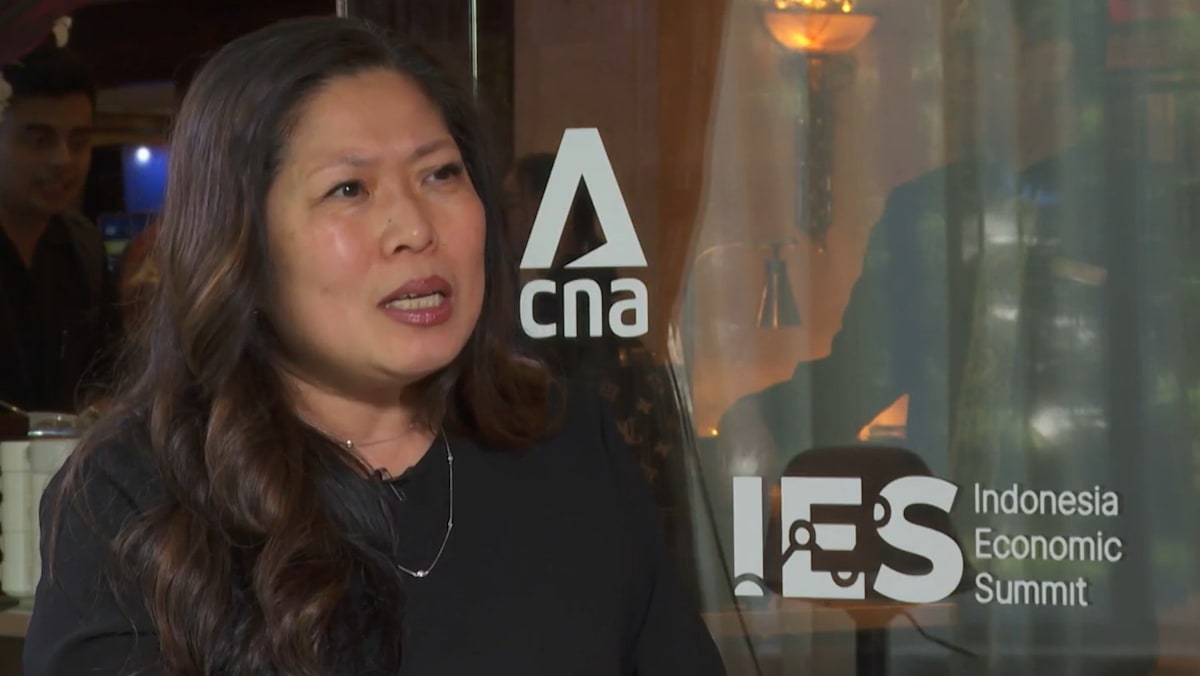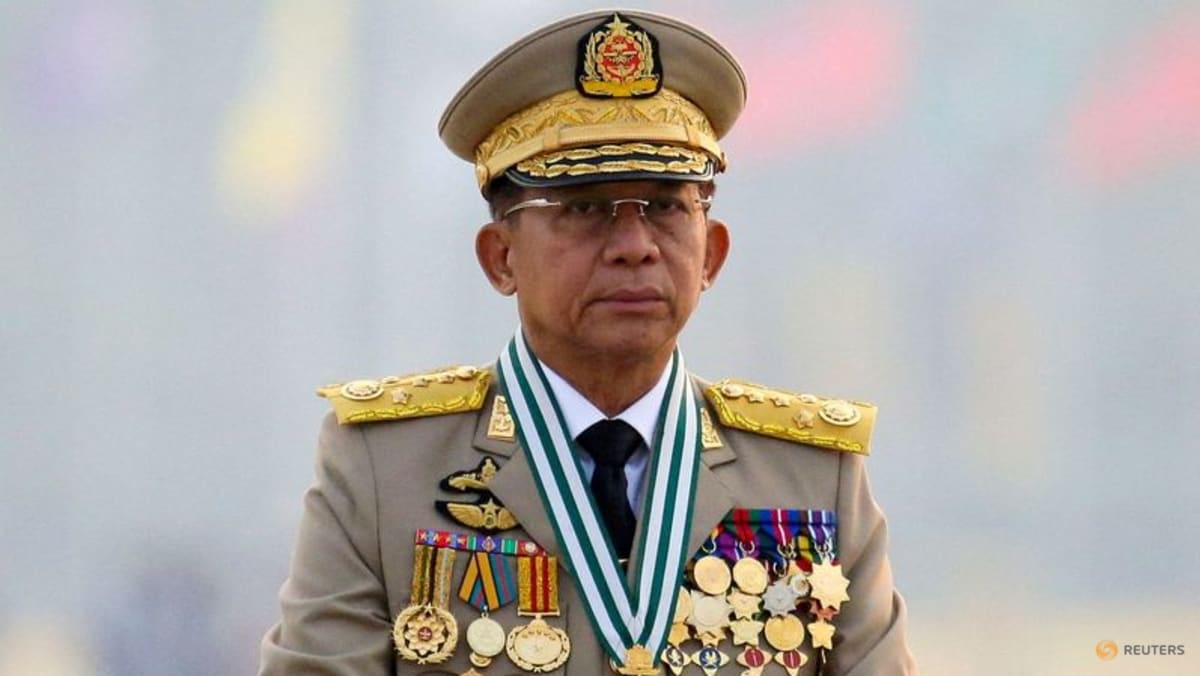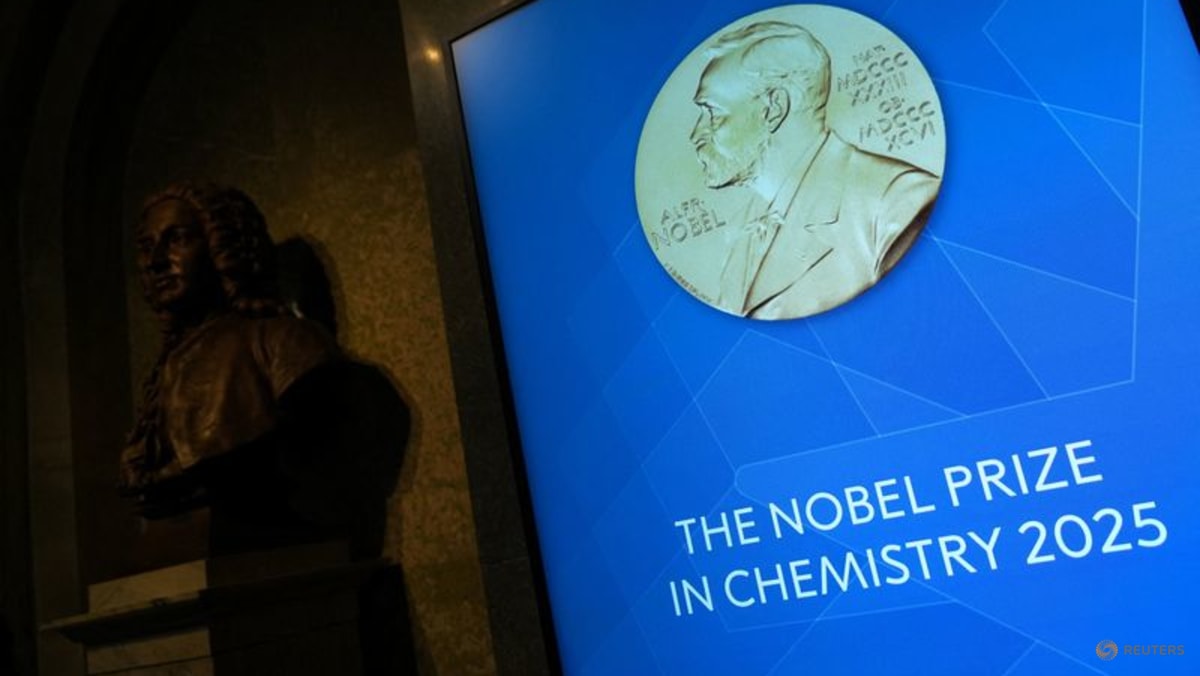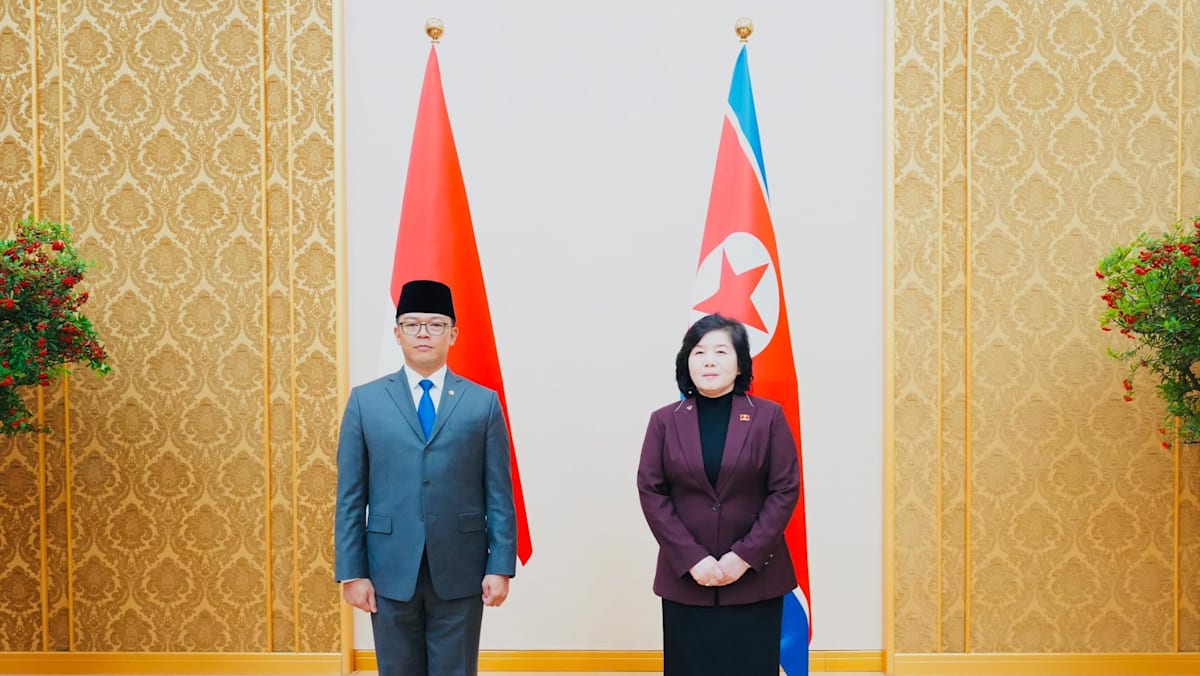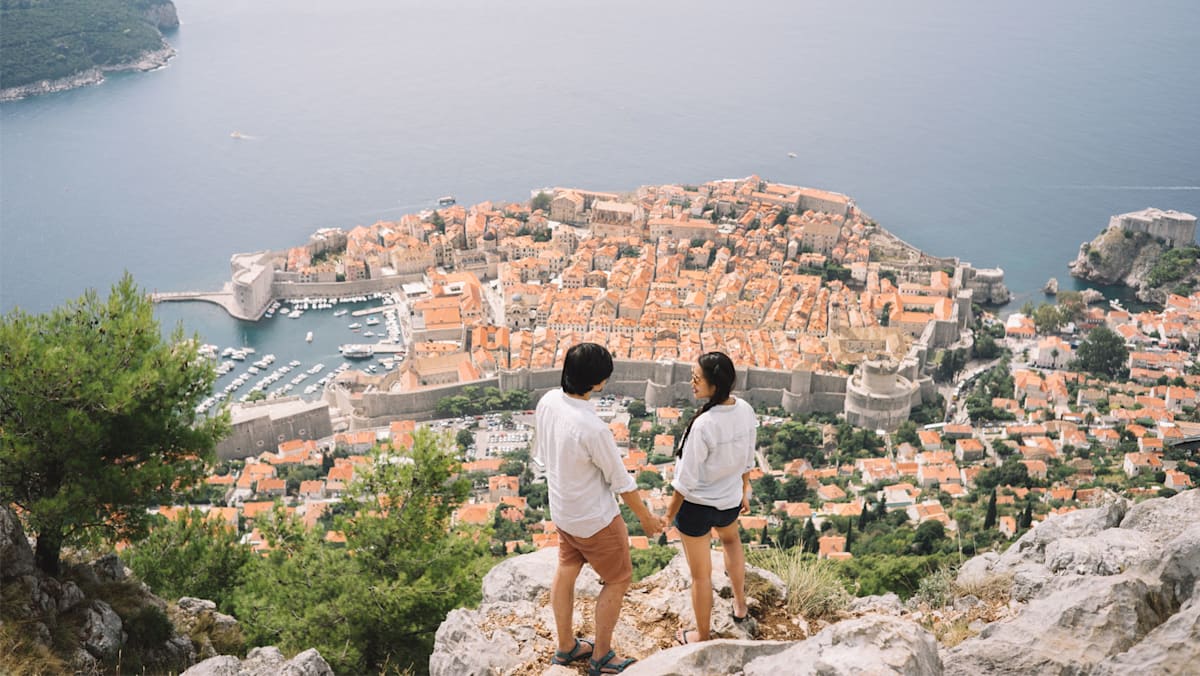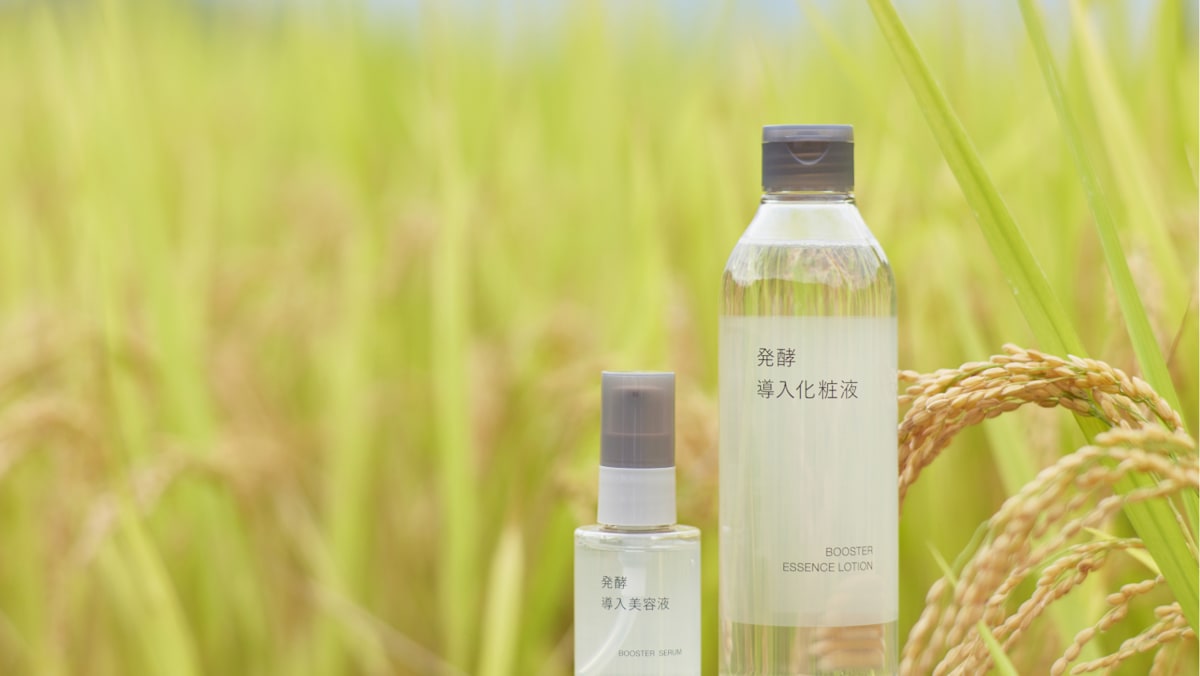Singaporean chef Aaron Tan — the first to be formally trained in the imperial culinary tradition — brings to life the grandeur of China’s legendary Manchu-Han feast at Man Fu Yuan.
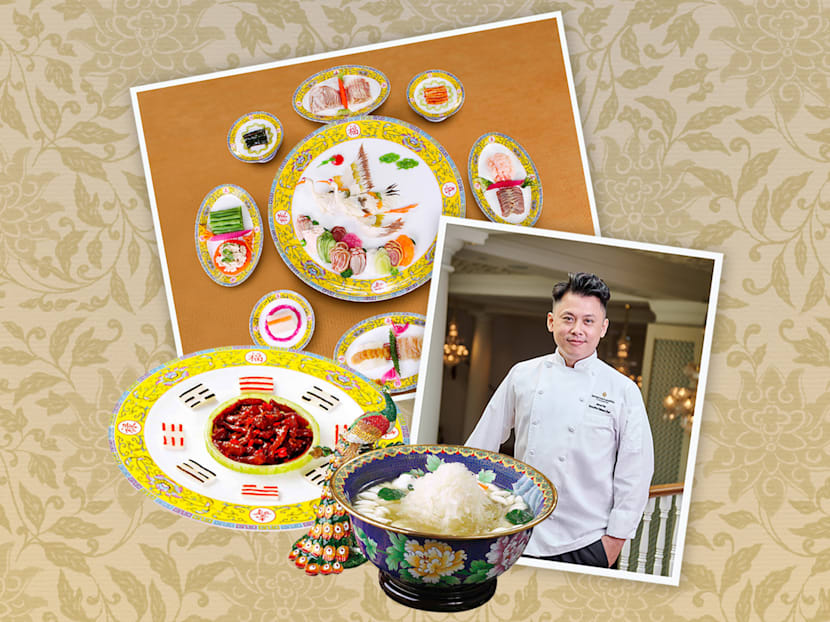
Under the guidance of his mentor, master chef Qi Jinzhu, Singaporean chef Aaron Tan recreates the splendour of China’s most extravagant imperial banquet at Man Fu Yuan. (Photos: Man Fu Yuan; Art: CNA/Jasper Loh)
New: You can now listen to articles.

This audio is generated by an AI tool.
Come Nov 8 and Nov 9, Cantonese restaurant Man Fu Yuan at InterContinental Singapore will serve a condensed interpretation of China’s most elaborate dining tradition: The Manchu-Han Imperial Feast. Said to have originated in the mid-1700s during the reign of the emperor Kangxi, the feast famously featured 108 dishes served over multiple days. While there are no surviving records to confirm these banquets actually took place on such a grand scale, the legend has long captured the imagination of chefs and diners across generations and, since at least the late 1800s, has been upheld as an example of how the Chinese imperial family ate.
Man Fu Yuan’s recreation of this event will be led by the hotel’s executive Chinese chef Aaron Tan, who is the first Singaporean to have been formally trained in this imperial tradition. He will cook alongside his mentor, master chef Qi Jinzhu, a direct disciple of the Qing Dynasty’s last imperial chef, Tang Keming. Qi has spent more than 50 years studying and preserving imperial cuisine. In 2017, he published The Inheritance And Innovation Of Palace Dishes, a book that chronicles recipes and dishes of the Manchu-Han feast.
If there is one thing history can agree on, it is that the imperial cooks took very seriously their duty to impress, regardless of cost or effort. For these banquets, animals were plucked and hunted from the land, sea and sky — think pangolins, leopards, monkeys and tigers. Each course calls for days of preparation so that the resulting dishes are as much a feast for the eyes as they are for the taste buds. Consider the most famous of these, the Orchid Bear Paw. To recreate the braised paw of the black bear in autumn (when they are thought to be at their chubbiest), chef Tan and his team stuff pig skin set in a custom bear paw mould with pork and braise it to melting tenderness.
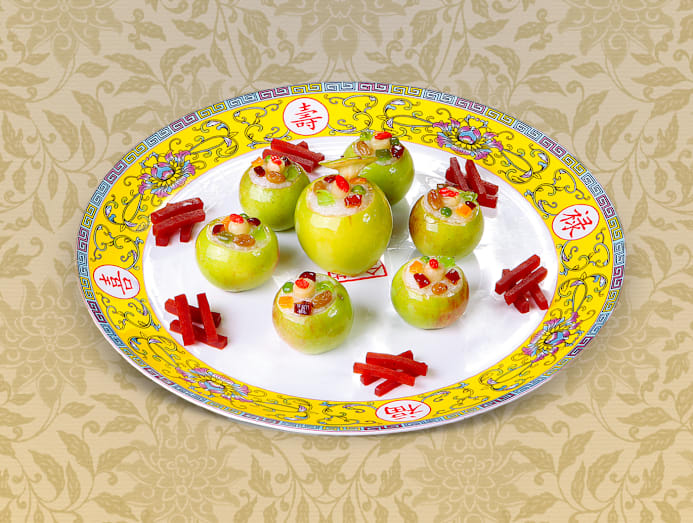 Green apples stuffed with sweet glutinous rice and dried fruits. (Photo: Man Fu Yuan)
Green apples stuffed with sweet glutinous rice and dried fruits. (Photo: Man Fu Yuan)
Another notoriously difficult dish to prepare is the Kun Lun abalone, which must be soaked, braised and steamed in stages over seven days with other premium ingredients like Jinhua ham and swordfish. Each abalone half is stuffed with the skin of a 300kg giant grouper sourced from Shenzhen, costing S$6,500 (US$5,008) a piece. The grouper skin must first be rehydrated in iced water for five days, with the water changed daily to maintain a consistently low temperature. It is then steamed till the skin curls, making it easier for the chefs to extract the scales by hand. This must be expedited quickly — if skin cools, the scales retract and become impossible to remove — so the fish is steamed multiple times throughout the process to soften the skin just enough for further descaling.
GOING IN ALL IN
In the tradition of the Manchu-Han banquet proper, the meal begins with a tea ceremony, a lavish course of dried fruit, nuts, and pastries, and a cold Auspicious Clouds Platter anchored by a crane carved out of radish. Delicacies like braised duck gizzard, stewed pig ears, and beef shank surround the crane, chosen not only for taste but for symbolism.
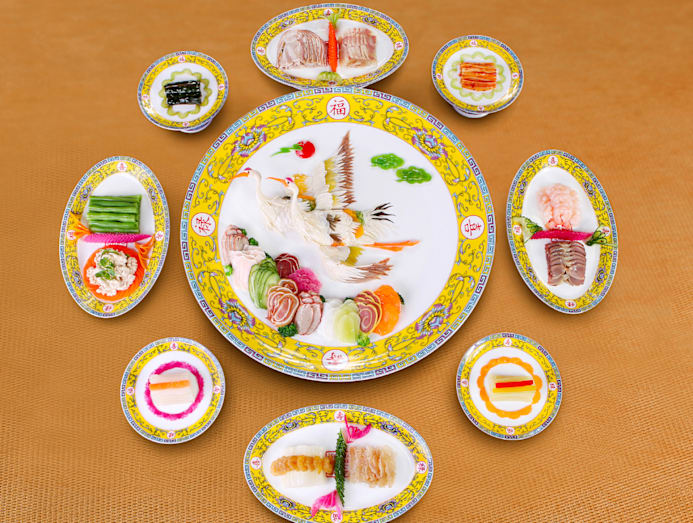 The main cold plate. (Photo: Man Fu Yuan)
The main cold plate. (Photo: Man Fu Yuan)
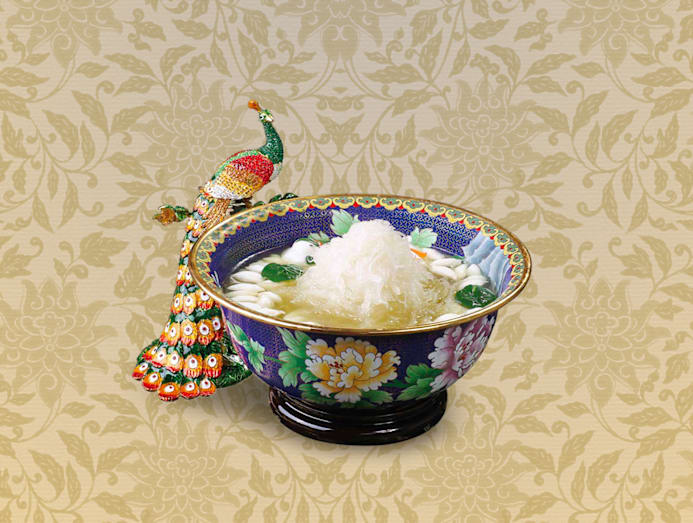 The tableware was specially sourced to match the dishes plated in Qi’s book. (Photo: Man Fu Yuan)
The tableware was specially sourced to match the dishes plated in Qi’s book. (Photo: Man Fu Yuan)
There is no sense in doing something this ostentatious by half, so the feast’s recreation extends to every element of the experience. There will be musical and calligraphy performances during the dinner, while the service team will be dressed in Qing-era costumes. Even the tableware was specially sourced to match the dishes plated in Qi’s book. “It cost us about S$14,000 just for the chinaware,” said chef Tan.
A LIFELONG GOAL
Tan, who has worked in kitchens since he was 11 years old, has been captivated by the idea of the Manchu-Han imperial banquet since he watched the 1995 Hong Kong film The Chinese Feast as a teenager. “I must have watched that video 10 times because I was so inspired by the culinary artistry of the dishes from the banquet featured in the movie. I’ve always thought it would be an honour if I could one day prepare this extraordinary experience,” he said.
In 2023, Tan met Qi at a cooking competition in Sarawak and resolved to learn the nuances of the Manchu-Han banquet repertoire from him. “I tried to follow him wherever he went, make myself useful, and ask questions,” he added. “Eventually, he recognised my passion and took me on as a disciple last year.”
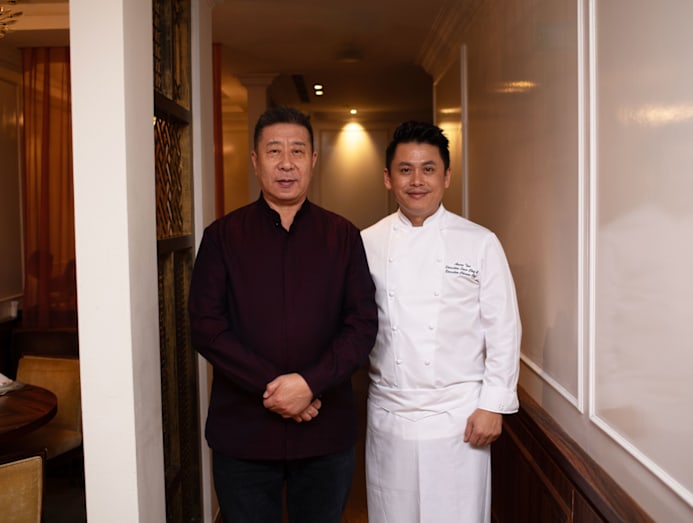 Master chef Qi Jing Zhu and chef Aaron Tan. (Photo: Man Fu Yuan)
Master chef Qi Jing Zhu and chef Aaron Tan. (Photo: Man Fu Yuan)
Tan said that Qi has over 400 disciples around the world, dedicated to recreating the 240 dishes in his book. Several of them will fly to Singapore to assist Tan and Qi during the dinner at Man Fu Yuan. “Chef Qi always teaches us that, as disciples and brothers, we need to bother each other more often,” Tan said. “By asking each other questions and helping one another, we grow and strengthen our relationships.”
Tan hopes to recreate the imperial banquet every two years. “It takes time for us to practice the dishes and discuss the menu with chef Qi on things like what ingredients to use when something is not available. Creating a meal like this requires a lot of space in the kitchen, and it’s quite an expense,” he said.
Man Fu Yuan’s Manchu-Han Imperial Feast is priced at S$588++ per person. The dinner on Nov 8 has sold out. Reservations are still available for dinner on Nov 9. For reservations, call 6825-1008 or email sinhbmanfuyuan.manfuyuan [at] ihg.com.












